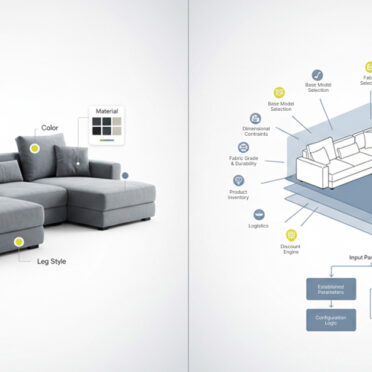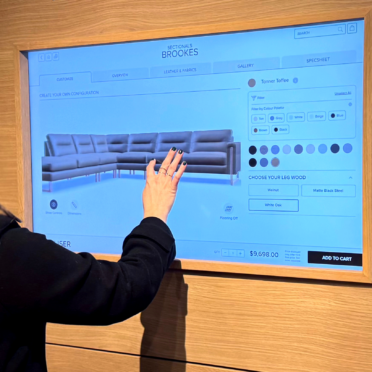As part of the world of technology in 2024, we find ourselves at the crossroads of innovation, efficiency, and exciting advances with the proliferation of generative AI. This piece will use first hand insights from Martin Babic, a seasoned developer who has spent decades using technology to solve business problems, to discuss the transformative power of AI on programming practices.
Martin is a Solutions Architect at Jola Interactive and has 25 years of experience programming, 15 of those on the Magento platform. His role involves not only the technical aspects of coding but also understanding and analyzing business needs to deliver comprehensive digital solutions. The work he does at Jola involves building complex eCommerce websites that function as business platforms for large furnishings companies. What makes this work different from programming simple websites is that they are heavily focused on structuring data information and integrating with ERP, PIM, DAM, etc systems to automate business processes such as managing shipments, payments, product information, and updates for Jola clients.
Experimenting with AI for programming began as individual members of the team dabbling and exploring possibilities, but through this trial and error, the team has now invested in AI-based programming tools such as Github Copilot and is working on incorporating them into their workflows.
In this interview, Martin delves into the transformative impact of AI on his work and shares his vision for the future of web development. Read on to learn more!
#1: Efficiency Unleashed
As the conversation unfolds, Martin sheds light on the efficiency gains facilitated by AI tools such as Github Co-pilot. He has found significant time savings, particularly by handling repetitive and mundane tasks such as improving code readability, offering the correct syntax, and tweaking code through the chat feature. “There’s definitely a 5 to 10% increase in efficiency because everything is in line, in an editor.” This testament to AI’s role in streamlining workflows underscores its transformative potential in optimizing development processes and maximizing productivity.
#2: Jointly Elevating Quality Assurance
Martin expressed his desire for greater accuracy and reliability: “the only desire I’d have is for the tools to be more accurate so that you don’t have to tweak it to get the code correct.” He reflects that code quality is where AI tools have the largest room for improvement.
The way that AI helps with code quality and integrity is by freeing up time and allowing developers to reclaim it for creative problem-solving, which in itself has been invaluable.
#3: Redefining Collaboration
For Martin, AI transcends its role as a mere tool, evolving into a dynamic learning companion in his coding process. He emphasizes the educational value of AI-generated code suggestions, envisioning it as a catalyst for professional growth and development. In this relationship between human and machine intelligence, developers embark on a journey of continuous learning and exploration.
#4: Future Generations of Programmers
When asked if it is time to make significant changes to curricula for upcoming generations of developers, Martin expressed that the current state of AI programming tools is far from allowing developers in the upcoming generation to skip the rigor of programming languages. However, he mentioned that the tools help get results much faster for someone with a solid knowledge base.
In the future, Martin envisions AI’s transformative potential in catalyzing collaborative endeavors, stating, “The jobs might shift… developers might be prompting more than writing actual code, to just getting the program to do the right thing. Though business analysis may be a bit farther off.”
Conclusion:
Martin Babic’s reflections leave us optimistic about the future of AI in programming. He acknowledges having only scratched the surface of its capabilities, and feels that the efficiency gains and transformative potential he’s experienced are undeniably promising. With each interaction, Martin’s confidence grows, envisioning a future where AI not only streamlines tasks but can also elevates the quality and creativity of programming endeavors. As developers continue to explore and embrace these tools, the possibilities for innovation and collaboration are truly boundless.









